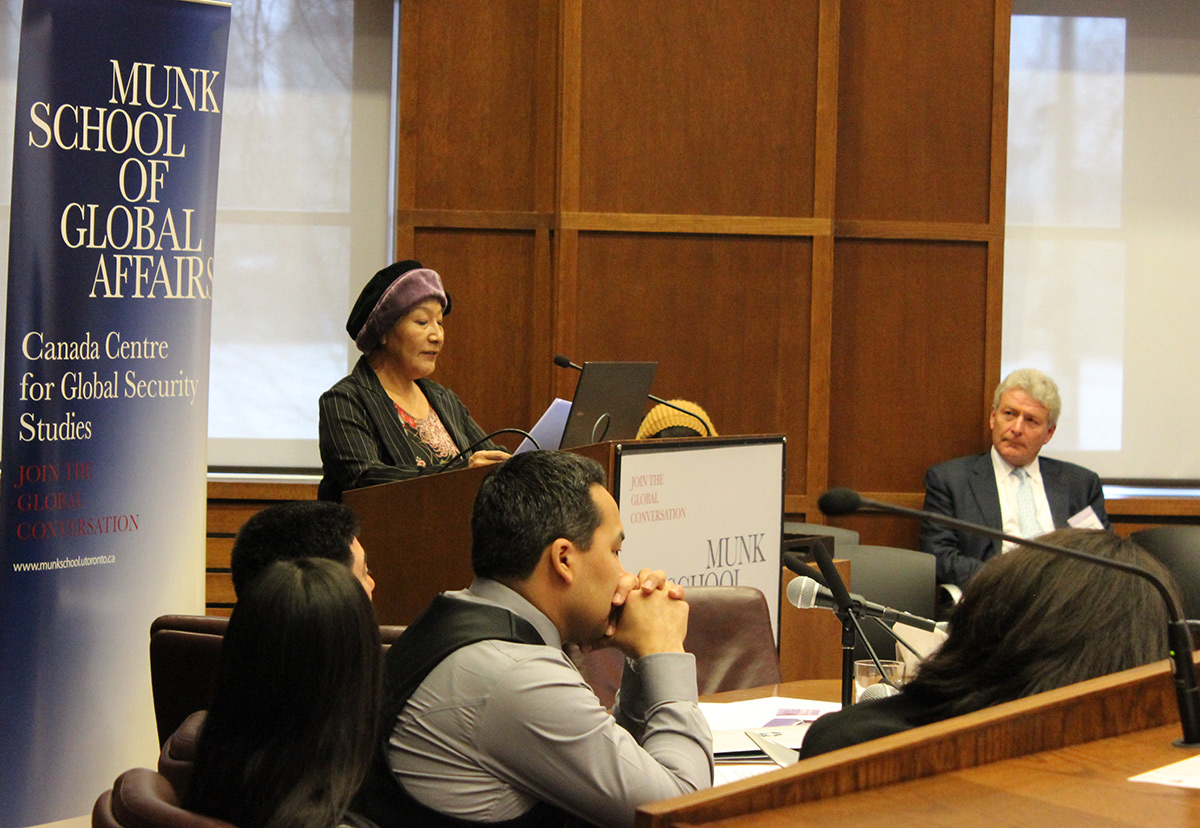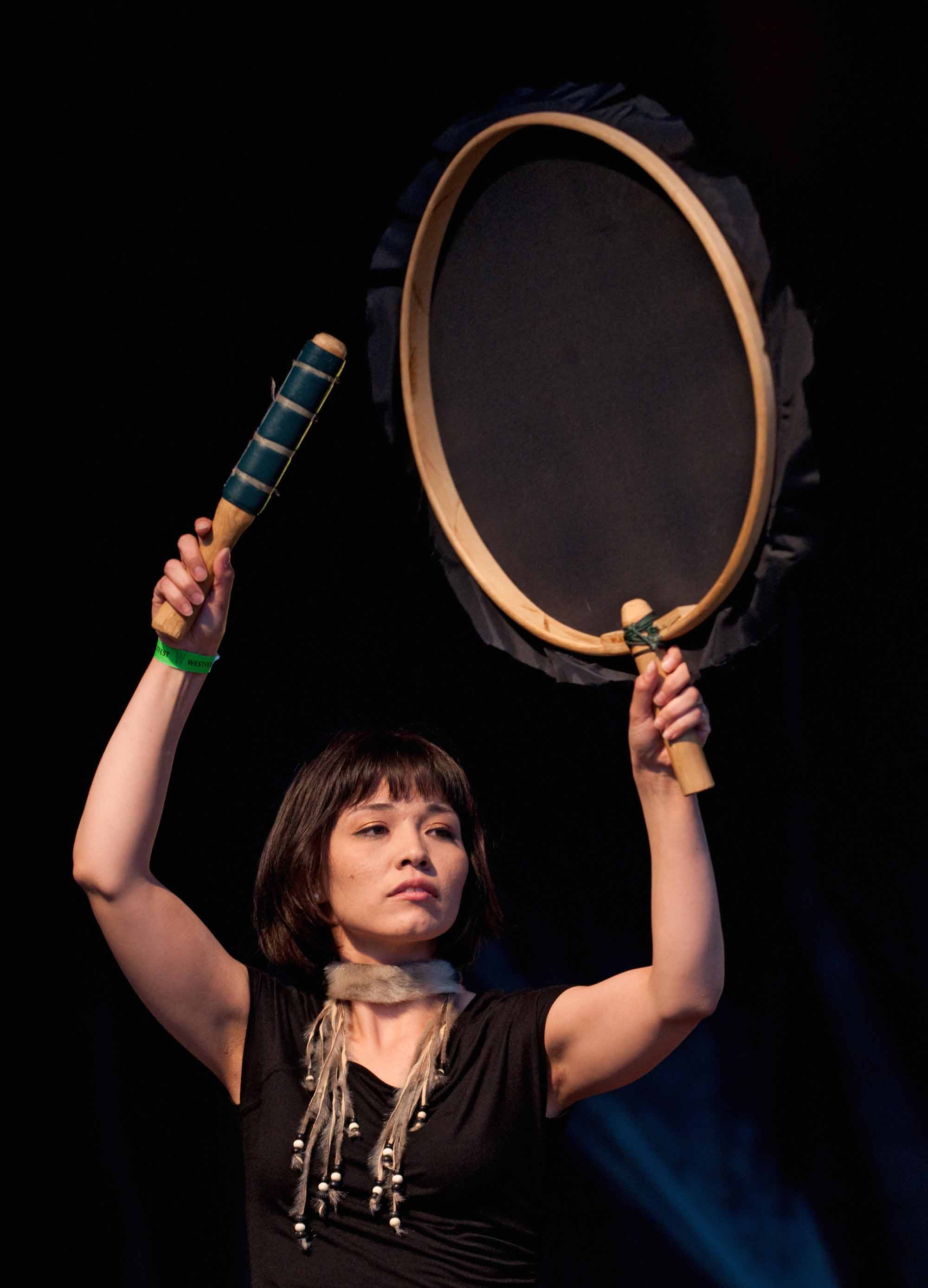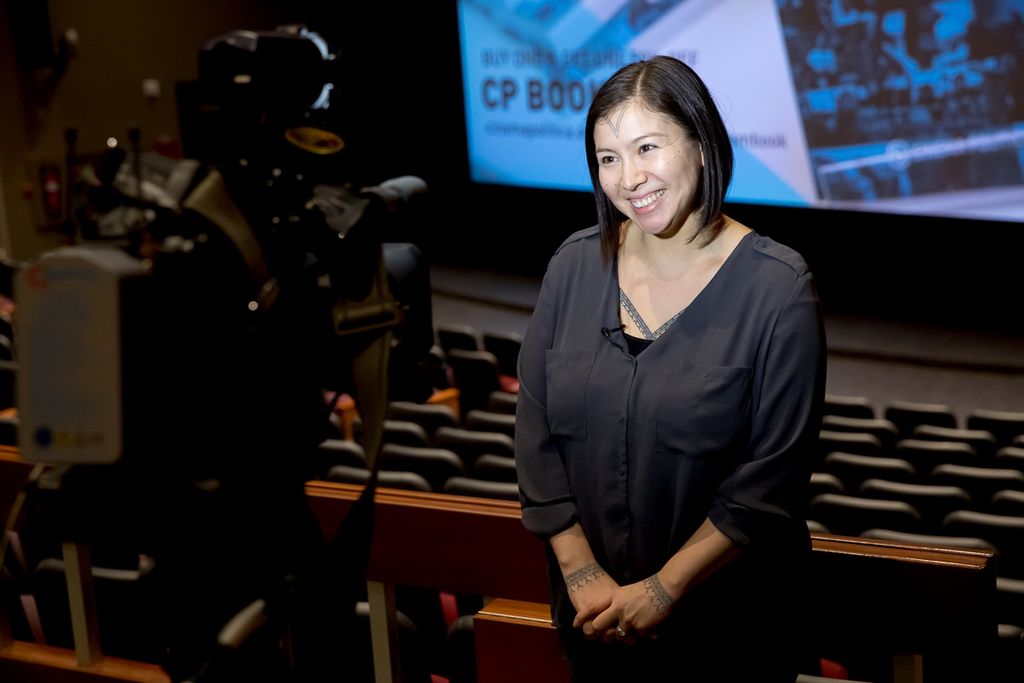Rosemarie Kuptana (sometimes Rosemary), OC, Inuit broadcaster, author, rights activist, and former president of Inuit Tapiriit Kanatami (born 24 March 1954 near the Prince of Wales Strait, NT).
Early Life and Residential School Experience
Kuptana was born in an igloo while her parents were seal hunting on the frozen Prince of Wales Strait. The family lived a traditional life until Kuptana was six years old. It was then that her father, William, moved the family to Sachs Harbour for a job building the Royal Canadian Mounted Police (RCMP) and weather stations in the hamlet.
Until the age of eight, Kuptana spoke Innuinnaqtun – the Western Arctic language she lost when she was taken away from her family by the RCMP to a residential school in Inuvik. Kuptana spent nearly a decade in residential school in Inuvik. She recalls being slapped and whipped with a switch for speaking her language. “The most hurtful was going home and feeling like a stranger, not being able to talk to your mum and dad, or your grandmother, in your own language,” she said years later. The loss of her language in residential school underpinned Kuptana’s later activism to preserve and promote Inuit languages and culture.
Broadcasting Career
In 1979, Kuptana became a radio broadcaster with CBC Northern Service, hosting a radio program in the Western Arctic about cultural and political issues affecting Inuit people. Later, she joined the new Inuit Broadcasting Corporation (IBC) that produced both radio and television programs in Inuktitut.
From 1983 to 1988, Kuptana served as president of the IBC. Driven by her own experience, she made it a priority to program in Inuktitut. She also helped to create much of the IBC’s administrative and journalistic infrastructure. In addition, Kuptana lobbied federal broadcasting regulators for more northern control over the airwaves and better access to Inuit programming on the CBC’s Northern Service.

Rosemarie Kuptana delivering a paper to the Munk School of Global Affairs, 2013
Inuit and Arctic Activism
In the mid-1980s, Kuptana began her political and advocacy work in Canada and internationally. From 1986 to 1989, Kuptana was Canadian vice-president of what is now the Inuit Circumpolar Council (ICC), the international organization that represents the Inuit of Alaska, Canada, Greenland and Russia.
In April 1991, at a critical time for Indigenous rights in Canada (See Rights of Indigenous Peoples in Canada), Kuptana began a three-year stint as president of what is now Inuit Tapiriit Kanatami (ITK), the national organization advocating for the self-determination of Canada’s Inuit. Kuptana’s tenure as president began in the midst of protracted constitutional negotiations that resulted in the Charlottetown Accord. With a seat at the negotiating table alongside Canada’s other national Indigenous organizations, Kuptana helped establish the recognition of Canada’s Indigenous peoples and their right to self-government in the accord. Re-elected to a second three-year term in May 1994, Kuptana also worked to ensure the protection of Inuit hunting rights and the expansion of Inuit land rights agreements in the North. However, Kuptana’s second term was cut short in June 1996 when she was removed by the board following severe financial difficulties at ITK.
In July 1995, Kuptana returned to the ICC to become president, serving for less than two years before resigning for health and family reasons.
Following her time leading national and international Inuit organizations, Kuptana turned her attention to environmental issues, particularly climate change. In 2000, Kuptana attended an international climate change meeting in The Hague and detailed the early effects of global warming on the ice around her community of Sachs Harbour. As well, she has advocated for a more holistic approach to climate change policy that uses traditional Inuit knowledge of the land alongside modern scientific study.
Legacy
Rosemarie Kuptana has made a major contribution to Inuit rights and culture over the past several decades. As president of the Inuit Tapiriit Kanatami (ITK), she fought for the self-determination of Inuit peoples in Canada. As president of the Inuit Broadcasting Corporation (IBC), she fought for increased Inuktitut-language broadcasting to preserve her people’s culture and heritage. More recently, Kuptana has striven to battle the effects of climate change and global warming in the North using traditional Inuit knowledge.
Awards and Honours
Kuptana is an Officer of the Order of Canada. She won the award in 1999 for her “work to advance Inuit culture, and to serve as a leader in human rights.” Kuptana is also winner of the Governor General’s Confederation Medal and the recipient of honorary doctorates from Trent and York universities.

 Share on Facebook
Share on Facebook Share on X
Share on X Share by Email
Share by Email Share on Google Classroom
Share on Google Classroom









